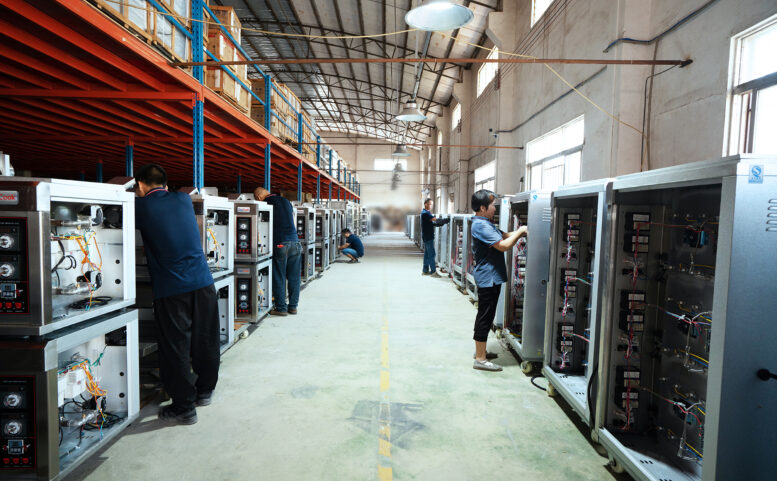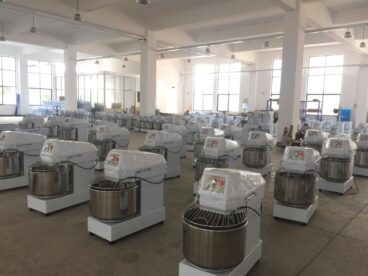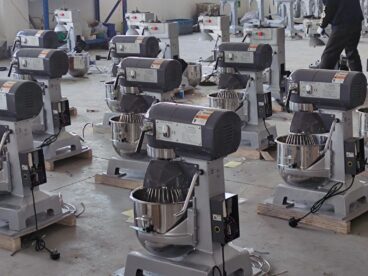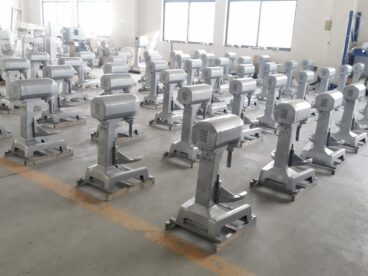In modern manufacturing, the industrial oven is a crucial technology. Whether in metal processing, food production, or electronics manufacturing, industrial ovens play an indispensable role in various fields. This article will delve into the working principles of industrial ovens, their application areas, and their key role in enhancing production efficiency.
Working Principles of Industrial Ovens
An industrial oven is a device that heats objects through the circulation of hot air. Its working principle is based on heat conduction and convection, utilizing high-temperature air to transfer heat to the surface of an object, allowing it to reach the desired temperature. Industrial ovens typically consist of a heating source, circulating fan, and control system.
The heating source can be resistive heaters, gas flames, or steam. When the heating source is activated, the generated heat is evenly distributed throughout the oven’s interior via a circulating fan, ensuring uniform temperatures across the object’s various positions. The control system monitors and adjusts the temperature to ensure precise control during the heating process.
Application Areas of Industrial Ovens
Industrial ovens find widespread application in many fields, some examples of which include:
Metal Processing: In the metal processing industry, industrial ovens are used for processes such as heat treatment, welding, and curing coatings. Through precise temperature control, ovens can enhance the strength, hardness, and corrosion resistance of metal materials.
Food Production: Food processing plants utilize industrial ovens for baking, drying, smoking, and roasting food items. From bread and biscuits to meat products, industrial ovens impart unique textures and appearances to food.
Electronics Manufacturing: In the electronics industry, industrial ovens are employed for soldering circuit boards, component encapsulation, and curing adhesives. Accurate temperature control is essential to ensuring the quality and reliability of electronic products.
Chemical Industry: The synthesis and treatment of chemical products often require specific temperature conditions. Industrial ovens are used in the chemical industry for catalyst activation, solution concentration, and drying solid samples.
The Role of Industrial Ovens in Enhancing Production Efficiency
Industrial ovens play a vital role in boosting production efficiency. Some key aspects include:
Uniform Heating: Industrial ovens evenly distribute heat across the surface of objects through circulating fans, ensuring that the entire object reaches a consistent temperature in a short amount of time, thus reducing heating durations.
Precise Control: Modern industrial ovens are equipped with advanced temperature control systems that allow for highly accurate temperature adjustments. This is crucial for processes requiring specific temperature conditions.
Automated Processes: Automation control systems simplify the operation of industrial ovens, reducing human intervention and the associated risk of human errors.
Expanded Production Capacities: Industrial ovens enable large-scale continuous heating processes, thereby increasing production line capacities and shortening production cycles.
Quality Assurance: Industrial ovens ensure that products meet consistent quality standards during the manufacturing process, reducing the rate of defects and enhancing product reliability.
Conclusion
As a crucial tool in modern manufacturing, industrial ovens play vital roles in various sectors, including metal processing, food production, electronics manufacturing, and the chemical industry. Through aspects like uniform heating, precise control, automated processes, expanded production capacities, and quality assurance, they greatly enhance production efficiency and product quality. With technological advancements, the functions and application areas of industrial ovens will continue to expand, bringing greater convenience and innovation to manufacturing processes across industries.






